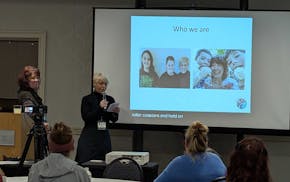What really matters is what you do now. That's what I'd tell you if you had just finished taking a writing class from me.
We've accomplished a lot. We've reviewed common word choice errors such as misspelling principal point as principle point and complimentary drink as complementary drink. We've talked about remembering to use commas both before and after the year in a date, as in June 1, 2015, is today's date, not June 1, 2015 is today's date. We've done exercises in subject-verb agreement, as in making sure it's There are two reasons, not There's two reasons, and The incidence of cyberattacks is increasing, not The incidence of cyberattacks are increasing. And we've worked with maintaining parallel structure, especially in PowerPoint presentations, so that items in vertical lists begin verb, verb, verb rather than verb, verb, noun.
We've also discussed organizing messages according to a three-part formula, purpose, background, proposed action; using pauses to create emphasis, as in We are committed to one thing: quality, rather than The one thing we are committed to is quality; and taking a direct, conclusion-first approach with sympathetic readers, and an indirect, evidence-first approach with hostile readers.
But what really matters is what you do after the class is over. To help you proofread for these common errors and put into play these principles of composition and persuasive strategy, I invite you to formulate a six-point writing plan, three goals for the week and three goals for the month.
Here are some things you can do to continue developing your writing skills over time:
1. Do the two 30-second writing exercises on grammar and style I post weekly at www.wilbers.com.
2. Browse the tips, techniques and resources posted at www.wilbers.com/contents.htm.
3. When you have a question about writing — whether it relates to grammar, punctuation, salutations, concise writing, customer relations or Rogerian persuasion — google "Wilbers" and a few key words.
4. If you don't already have a file for sentences and passages whose style you admire, create one. From time to time, browse through your collection.
5. When you encounter a sentence or passage you think is especially well written, copy it over, analyze its stylistic techniques and do your own version, using the original as your model, as I advise at www.wilbers.com/Read&Imitate.htm (or simply google "Wilbers imitate").
6. For a great source of literary and cultural history, along with a daily poem, sign up for Garrison Keillor's Writer's Almanac at info.americanpublicmediagroup.org/LP=56.
7. Read one of the books that I recommended in class or that I describe at www.wilbers.com/part15.htm (or google "Wilbers recommendations").
8. If you're not already a regular reader, become one. Good writers are generally good readers, as I discuss at www.startribune.com/wilbers-reading-will-make-you-a-better-writer-and-a-better-person/288101041/. (If you don't want to bother typing that long URL, google "Wilbers better person.") When you find a writer you particularly like, someone whose style resonates with you, read everything that person has published.
Now that you've made up your six-point writing plan, get started right away. Try to accomplish your first goal today or tomorrow.
Stephen Wilbers offers training seminars in effective business writing. E-mail him at wilbe004@umn.edu. His website is www.wilbers.com.

U.S. Bancorp executive stopped responding to control tower minutes before Brooklyn Park crash

Minneapolis condo in historic Midtown Exchange building listed for $205,000

RFK Jr.'s controversial comments draw ire at Minnesota autism convention

Big medical expenses drove $176 million operating loss last year at Medica

